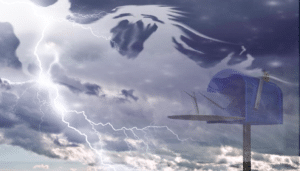The concepts of “masculine” and “feminine” energies are often discussed in spiritual, psychological, and cultural contexts. They are archetypal ideas used to describe different qualities, traits, or aspects of human experience. It’s important to note that these terms do not necessarily refer to biological sex or gender identity; instead, they are more akin to yin and yang in Eastern philosophy—complementary forces or qualities that exist within all people, regardless of gender.
Masculine Energy
Masculine energy is often described as more outwardly focused, tending toward action, doing, logic, and analytical thinking. It is associated with qualities such as:
- Strength and protectiveness
- Rationality
- Leadership and decisiveness
- Independence
- Competitive spirit
- Goal orientation
Feminine Energy
Feminine energy is described as more inwardly focused, associated with being, intuition, and emotional processing. It is linked to attributes like:
- Nurturing and caring
- Emotional intelligence
- Creativity and imagination
- Sensitivity and empathy
- Cooperation and community focus
- Openness and receptivity
Balancing Energies
Many spiritual traditions and self-help philosophies propose that personal and spiritual well-being involves balancing masculine and feminine energies. This balance is not static but dynamic, changing in response to different situations, needs, and phases of life. The idea is to be able to draw from both types of energy as the situation requires. For example, a person might tap into their masculine energy when they need to make a quick decision, but lean into their feminine energy when they need to empathize with someone else.
Cultural and Social Perspectives
The understanding and importance of masculine and feminine energies can vary widely among different cultures, religions, and philosophical systems. In some traditions, these energies are associated with specific deities, archetypes, or roles. However, it’s essential to be cautious about perpetuating stereotypes or limiting beliefs about what men and women can or should be like based on these archetypes.
Caveats and Considerations
- Not Gender-Specific: It’s essential to remember that these energies are not tied to one’s gender or biological sex. Both men and women can embody masculine and feminine energies, often in different measures and in various aspects of life.
- Avoid Stereotyping: While these concepts can help people better understand themselves and others, they can also lead to stereotyping and limiting beliefs if not understood as flexible, complementary qualities within every individual.
- Cultural Sensitivity: The labels “masculine” and “feminine” might not resonate with everyone and may have different implications or interpretations in different cultural or social contexts.
- Holistic Approach: Many people find value in moving beyond a binary understanding of masculine and feminine energies to embrace a more fluid, holistic view of human capabilities and experiences.
The concepts of masculine and feminine energies serve as tools for understanding different aspects of human behavior and spirituality. They can offer insights into interpersonal dynamics, self-awareness, and personal growth, but it’s essential to approach them with nuance and critical thinking.
Book Body Code healing session
Unlock the harmonious synergy within you by balancing the divine energies of masculinity and femininity. Our Body Code Sessions are carefully crafted to guide you in nurturing both strength and sensitivity, assertion and receptivity, and logic and intuition. Dive deep into a space where both energies are honored, respected, and cultivated. Book your Body Code session with us today, and embark on a journey towards a more unified, balanced self. https://www.reikihealingdistance.com/body-code/
